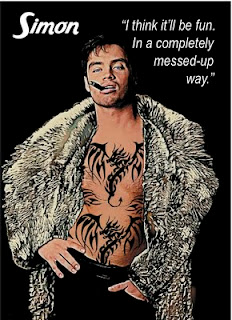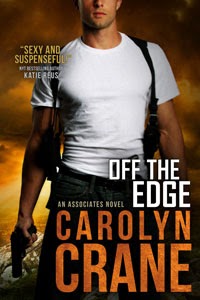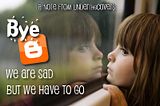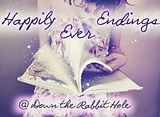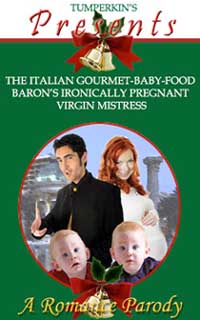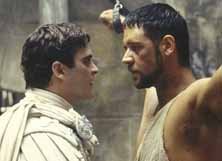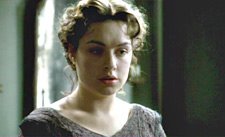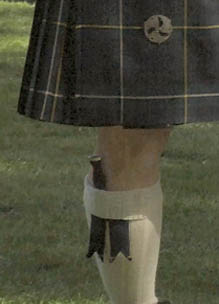A bit of background:
So, one night on twitter, my pal
Layla Messner (
@LaylaMessner on twitter) and I had an
interesting exchange on revising/editing and drafting. It turns out that Layla
enjoys first drafts far more than editing. And for me, first drafting can be
like cutting open a vein, and revising and editing is an enchanting and fun
cakewalk. We were curious about each other’s approach and we wanted to delve
into the subject beyond what you can do on twitter. Isn’t that what blogs are
for?
******
Carolyn: Hey Layla!
I’m so glad we’re doing this. Partly for selfish reasons: I want to be more
into first drafting. Like you! So, questions: What do you enjoy about first
drafting?
Layla: As I was
reading your intro the phrase, “first drafting can be like cutting open a vein”
jumped out at me. You might be thinking that since I love first drafting, I
must be about to say that first drafting is nothing like that for me. But guess
what? It totally is. Not all the time, but often. And I love that feeling.
I was not going to start with that aspect of first drafting,
but since you brought it up, why not go right for the challenge. Yes, first
drafting can be a warm and fuzzy flow of creativity for me, but that’s easy to
love. What’s harder to love is that bleeding-onto-the-page-feeling. So, I’m
going to try to describe what I love about that…
It’s a very raw feeling. Like telling uncomfortable secrets.
But I think what I love about it is that there’s nobody here but me, no one to
see it. I don’t have to worry about what anyone else will think. I can tell the
absolute truth, to myself, no matter how dark it may be. I can put it to words,
and see it in front of me. Nothing hidden.
Carolyn: Wow, so
you’re thinking uncensored truth. This is already giving me insights. Here’s
what I think is interesting: we even have different definitions of the phrase
“cutting open a vein” when applied to drafting. When I wrote it, I meant it
more like an unpleasant thing, and also a kind of drudgery, but worse, whereas
you saw it as getting some truth down, messy as it might be.
On a first draft, my thinking is always, get this thing
down, and then the fun can start. I think it’s natural for first drafts to be
pretty bad, and I like muscling them into shape, but not building them from the
ground up. The more refined things get, the more fun I have. Help! What do you
say to a person like me?
Layla: You say, “My
thinking is always, get this thing down, and then the fun can start.” I’m
picturing the first draft as a huge hill in front of you, and if you can just
climb it, it’s a nice downhill from there?
Carolyn: That hill
metaphor is perfect, though I don’t worry about not getting a thing done, it’s
more about impatience, and I don’t like wasting a bunch of time, or going down
wrong paths, and most of all, I can’t see over the top. I can’t SEE the thing
to work on it until I have a draft down.
Clearly I’m not valuing or enjoying the journey of the first draft!
It sounds like for you, first drafting is a high trust/high
faith experience, and revising is an experience characterized by less trust and
faith, or, maybe more worry. Whereas for me, drafting is a low trust/low faith
experience, but once I have that draft, I feel confident I can make it work.
Layla: That sounds
right on.
Carolyn: What’s
interesting is that, the only times I DO enjoy first drafting is when I’m
discovering things as I write, getting to some unexpected truth. But, mostly I
think I get to the truth in a piece through rewriting and refining—the more I
work on it, the more it comes into view and the more I see where it needs to
go, and the more fun and exciting it is.
I approach a first draft a little like an engineer,
arranging scenes I’ve imagined and getting their rudiments in, so that the fun
and real work can begin. But, maybe you have
a point. Maybe I’m not comfortable with something that’s too “in process.” I
have a sense of the first draft as something to be gotten under control.
Layla: Right away
reading this, I notice that it is the editing process that I approach like an
engineer—arranging the scenes—and it is exactly the part of editing that
doesn’t sing for me. The editing that I do enjoy is polishing the text itself,
which I find to be more creative. I think that with first drafting especially,
but also with text editing, I drop into right brain/alpha brainwaves much more
easily than during structural editing. I wonder if it’s the methodical
“left-brained” approach that we both find drains some of the joy from the
process?
Carolyn: Yes! Well, I think we have made a
mini-discovery - we both dislike the part that for us, is the least creative;
you feel like an engineer in the revision mode, I feel like an engineer during
drafting. That little tidbit is really kind of golden, I think. I need to think
about that. So, you see most of the real creative work as being in the first
draft.
Layla: Yes. The biggest impediment to my
creativity is my inner censor, which tries to convince me that
editors/critics/parents (I write YA) will take objection to my subject matter.
I keep this voice quiet in the first draft by reminding myself that no one else
has to see it. Because my first draft is produced in this atmosphere of trust,
I imagine it is pretty close to the truth of the story. But once I switching to
editing mode, the censor comes back full force and the process starts to feel
less like fun creativity and more like an exam. To make matters worse, the closer
I get to the finished version the more terrified I become that censor will win
and I will ruin the book, destroy its soul in an attempt to be marketable,
conventional (i.e. conform to conventions), and tight. Help!
Carolyn: Oh, so you
have a bit of an editor/judge on your shoulder during revision? That can be
hampering. If I think of people at all, I’m thinking mostly of my critique
partners, and sometimes of supportive readers. I never envision harsh editors
or frowning readers.
My mindset is like, there is a hidden perfect story in there
and I am hard at work finding it, and the drudge work is done, and I’m getting
closer and closer. And I have this feeling that they will be excited for what
is working and they will tell me what isn’t, and that will help me get closer
to my goal.
But I know that “onstage” feeling. Is there a way you can shift your mindset
about your audience in the editing process? Maybe think more about your
creative allies?
Layla: I love the
idea of imagining a world of allies, rather than critics. I’m going to have to
cultivate that. After all, at this stage the audience is all in my
imagination—why not imagine a supportive one, right?
Can you take me through a “day of editing with Carolyn”?
What’s your process like? And how does that compare with first drafting?
Carolyn: I do my
editing on the computer, and my work time is in the morning, if I can arrange
it, so generally, I just have my black tea and breakfast, and I sit down and
read my email, and do some social media things while my mind is waking up, and
then I open my document.
Usually I’ve highlighted an area in red where I’ve left off,
so I undo that red and just start reading. And things just pop out at me. And
if something doesn’t feel right, I change it and rearrange things until it’s
right. I have a vision I’m pushing the story toward, but I sometimes discover
opportunities. Though sometimes there are specific things, like, make sure a
character is wearing a hat in this scene, or, I need a certain thing said. A
lot of times, I’ll back up and take another pass over what I just revised and
re-polish. I can get lost in the editing and do it for hours. Unlike first
drafting.
My editing feeling is that of relaxation and puzzle-y,
polish-y fun, as opposed to first drafting, which can be a bit more white
knuckled.
What is your
mindset as you sit down to write? What is your process?
Layla: You want to
know about first drafting, right? I try to write every weekday, and I usually
set aside time. But even so, a lot of the time when I end up working on my
first draft, it’s in addition to that time. In other words, I’ve just gotten an
idea. I sit down to grab it while it’s there and the next thing I know I’ve
written a whole scene.
A little while ago, I was reading the Deadline Dames blog (
http://www.deadlinedames.com/) and one
of the dames – I apologize for not remembering which one – was talking about
the fact that she can’t tell the difference between the stuff she wrote in a
moment of inspiration and the stuff she made herself sit down and plod through.
I wish I could say that is the case for me, but the scenes I write in moments
of inspiration seem to be the major building blocks, and the language is almost
always more alive and often requires less editing than scenes written when I
forced myself to work. But I still sit down and work even when I’m not inspired
because it works to move the project along. I feel happier when I write, and
inspiration can and often does come halfway through a writing session.
So, assuming it’s a “scheduled” writing time and not a
blinding flash of inspiration, I sit down, pick up where I left off on my last
writing day, or wherever I feel like working. And I just start writing whatever
comes to mind.
If I don’t have an idea, I will start reading/tweaking a few
paragraphs back and that will get the juices flowing. I read a quote by an
author (again, I can’t remember who) who said always stop for the day when you
know what comes next. I try to do that. At the end of my writing day, I’ll make
a note in brackets [like this] of what’s coming next, so I have somewhere to
start.
One writing practice I enjoy freewriting. (Setting a timer
and writing from a prompt for 5-10 minutes. The goal is to never stop writing
during that time, not even pause.) I often first draft in a similar style—just
write and don’t stop.
I keep track of my daily and weekly words, and running word
count on my blog, which is something I find very motivating.
I just love the experience of finding out what’s going to
happen next.
When I don’t feel inspired, I’ll often edit instead. And,
interestingly enough, when I edit /while/ first drafting, I really enjoy the
honing process. Hmm.
Carolyn: Do you have
any tips for first drafting?
Layla: The more
writing advice I read, the less I want to be caught giving any, but keeping in
mind that writing is different for everybody…
I often hear people saying that if you’re stuck, remind
yourself that it’s just a first draft and no one else has to see it. And to
just sit down and write. These work for me. Otherwise…
I think practicing freewriting could help, and thinking like
that when you draft – just write whatever comes, quickly. So what is you don’t
use it.
Allow yourself to be surprised.
Trust your spontaneous use of language.
Set some kind of doable goal you can reward yourself for.
Try to enjoy it, like a road trip with no set itinerary.
If all else fails, maybe tell yourself, “No, this is not my
favorite part. But I have to do it to get to my favorite part, so, by golly, I
am going to try to enjoy it. I’d like to write a bunch of words today so that I
can have the pleasure of editing them later.” Or, “It’s okay if these words
aren’t any good. I get to edit them later. I love editing, so extra bonus for
me.” *grin*
Your turn.
Carolyn: My tips for
editing success would be…hmm. I’d say, take yourself out of it. It’s between
you and the sentences and scenes, and just flow along until you hit a snag, and
then fix the snag and keep going. I mean, if you’re imagining anyone, it’s best
for it to be supportive people, but ideally, you’re in the reader’s seat during
editing, and I mean, you as a reader, making something you’d want to read.
I would say, trust yourself, too. I don’t know how you
cultivate that, but the person you trust to get that great first draft down is
just as capable of discovering more truth and more cool stuff on the editing
end.
Henry Miller once said, “don't be nervous. Work calmly,
joyously, recklessly on whatever is in hand.” I try to keep that in mind on
first drafting, but it’s great editing advice. You’re not going to ruin the draft
by editing. If you’re worried about it, save a version and then edit a
different version, and be bold with it, and then you’ll always have that old
draft if you decide you wrecked it, but you probably didn’t.
Another weird thing: you mentioned that you enjoy the honing
process when you’re revising during drafting, as opposed to when you revise
during revising. I’m the same way, but reversed. Often, I have to write
entirely all-new scenes to stick in to a complete draft, so, that’s a type of
first drafting, but I never find it as unpleasant as when I’m doing a scene on
a first draft run.
So, it’s all in the mindset! I have to think about this.
Layla: Yes, it’s
sounding more and more to me like an issue of things “things that interfere
with the creative mindset,” or something like that—i.e. being in a rush,
imagining outside critics, being “left-brained”…
Carolyn: This is so
helpful. Okay, take-aways. I like to do those for myself. A few things I’m
taking away here: the idea that a first draft like telling uncomfortable
secrets. I love that. It appealed to me greatly when you said it. Also, the
idea that it’s not the task that’s the problem, it’s my mindset about it -
methodical, uncreative drudgework. Stop looking at it like it’s engineering.
Enjoy it. Allow myself to be surprised, as you say. I really like that.
Layla: This
discussion has been a pleasure, and so enlightening. My take-aways would
definitely be, making a conscious choice about the audience I imagine (a
supportive one), and “trust yourself…the person you trust to get that great
first draft down is just as capable of discovering more truth and more cool
stuff on the editing end.” Thanks, Carolyn! I’m going to take these to my desk
with me.
On my way out, I’d like to open the discussion…What about you? Love drafting? Editing? Have some tips to
share? Please chime in.
Carolyn: Thanks so much for doing this with me, Layla! Yes,
readers, let’s hear from you!
Nb: Layla can be found on twitter (@LaylaMessner) or on her website here!
 1. Book #3 is coming!
1. Book #3 is coming! 




